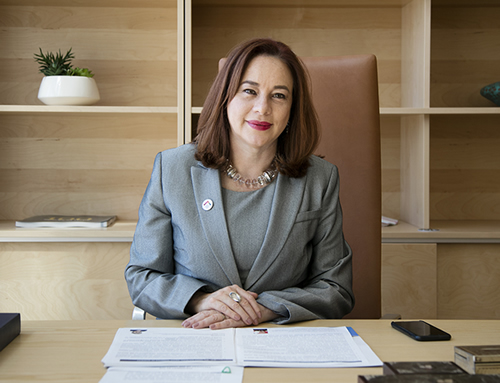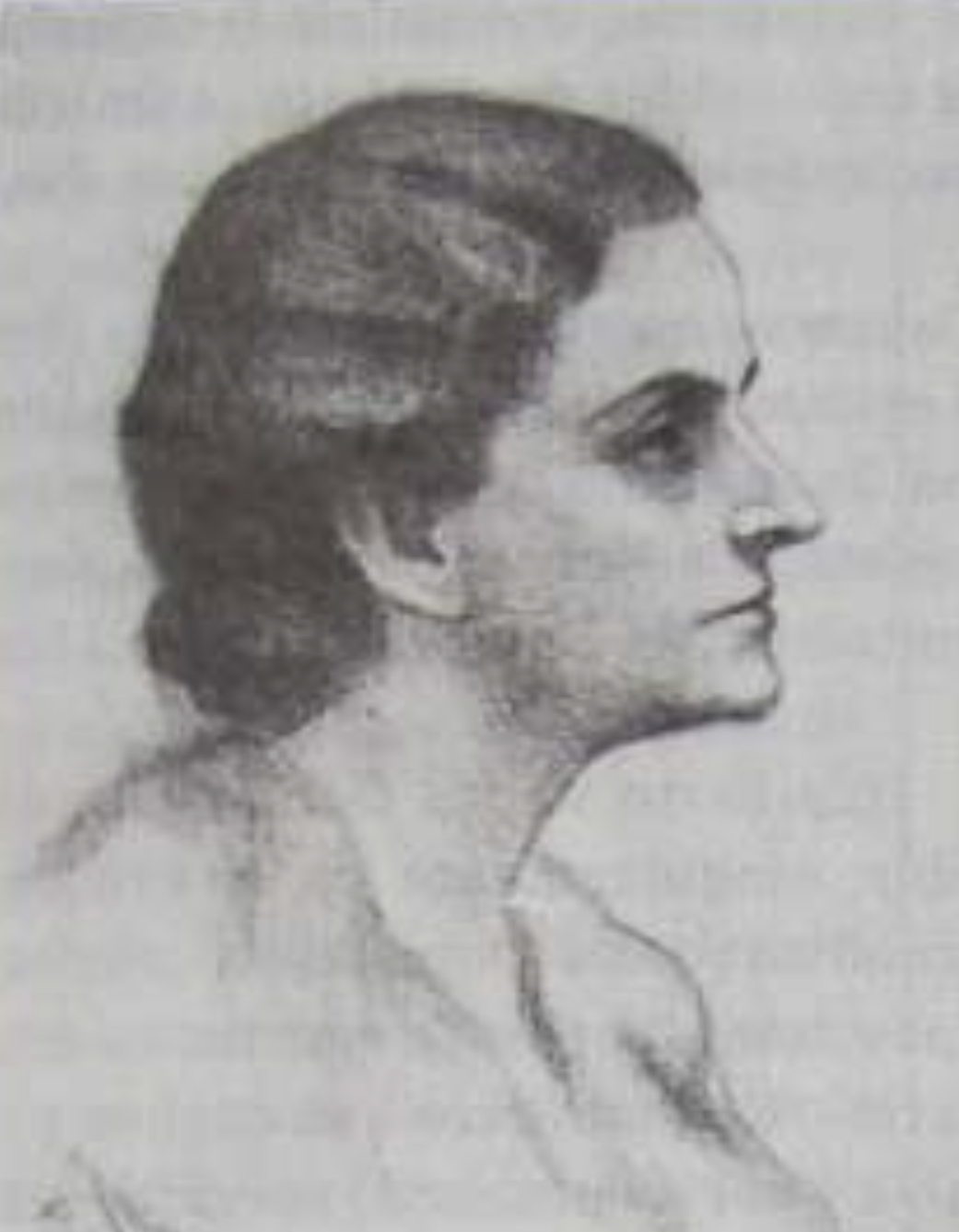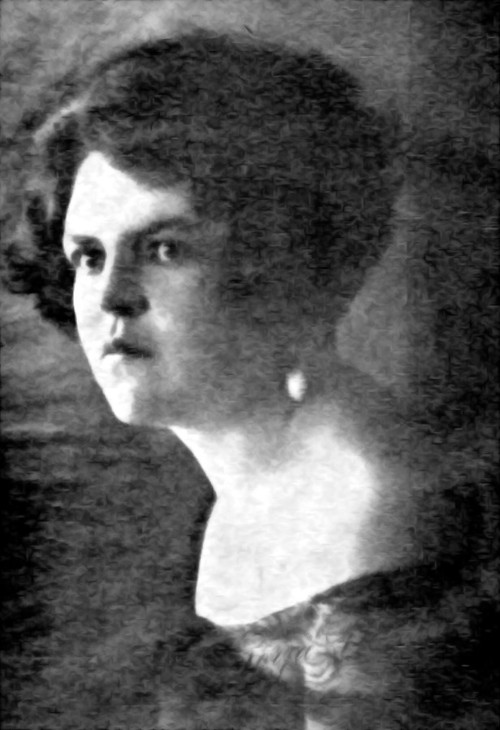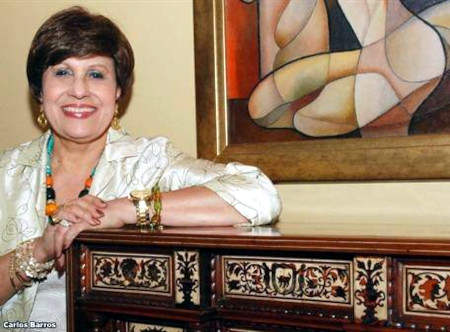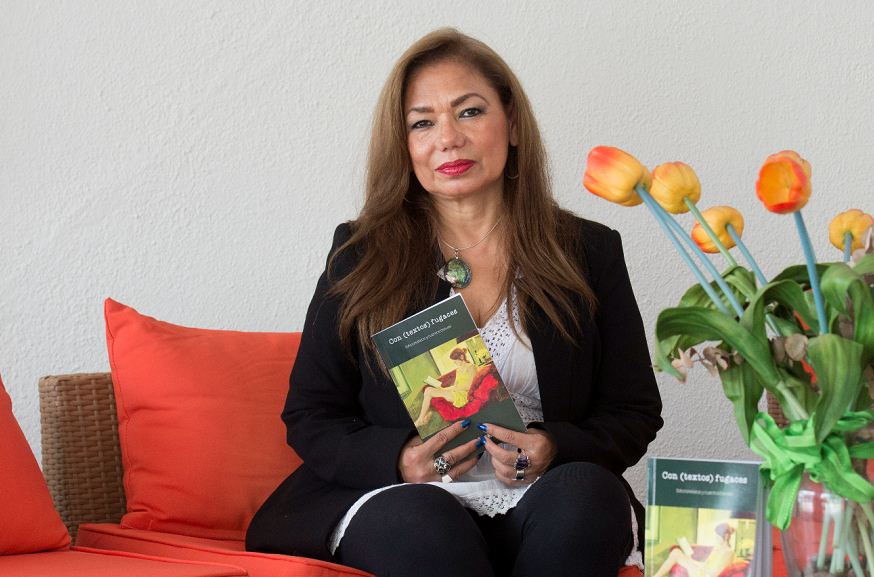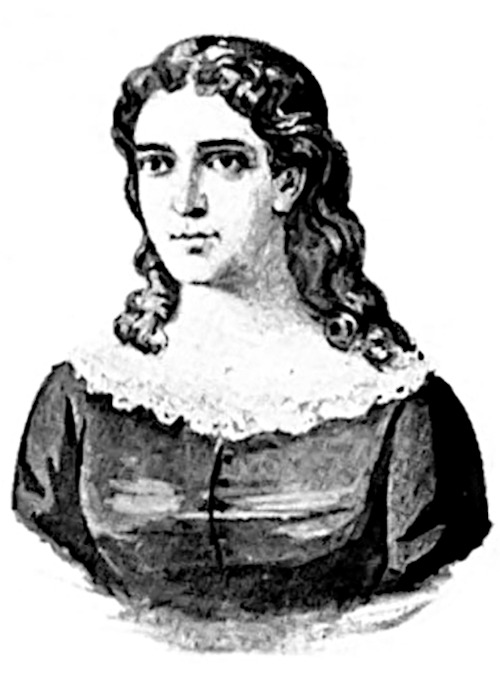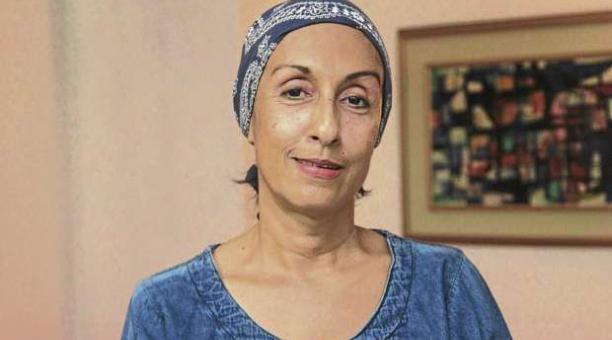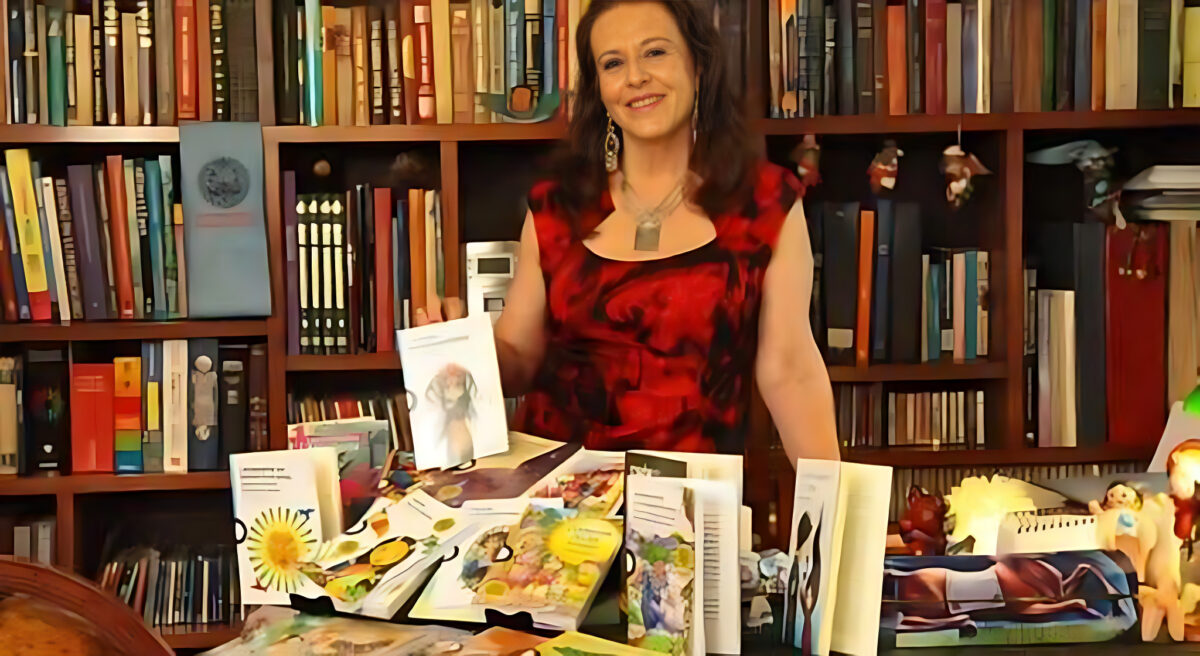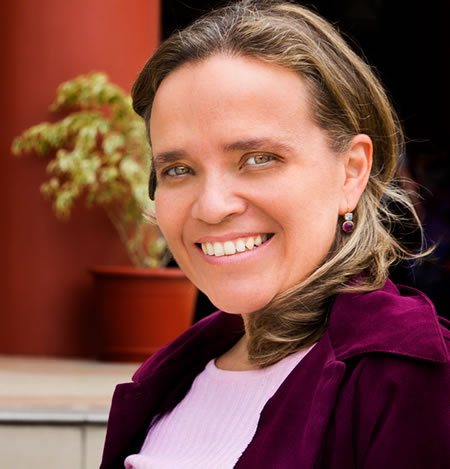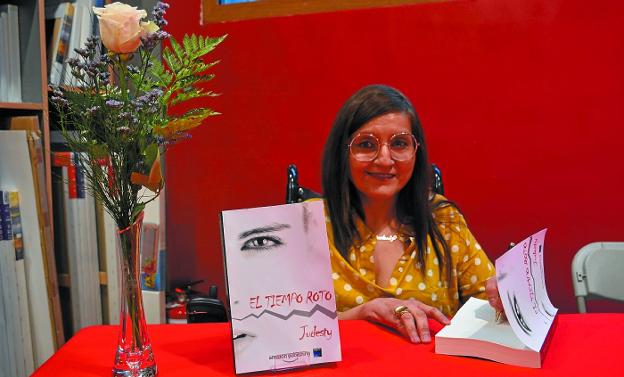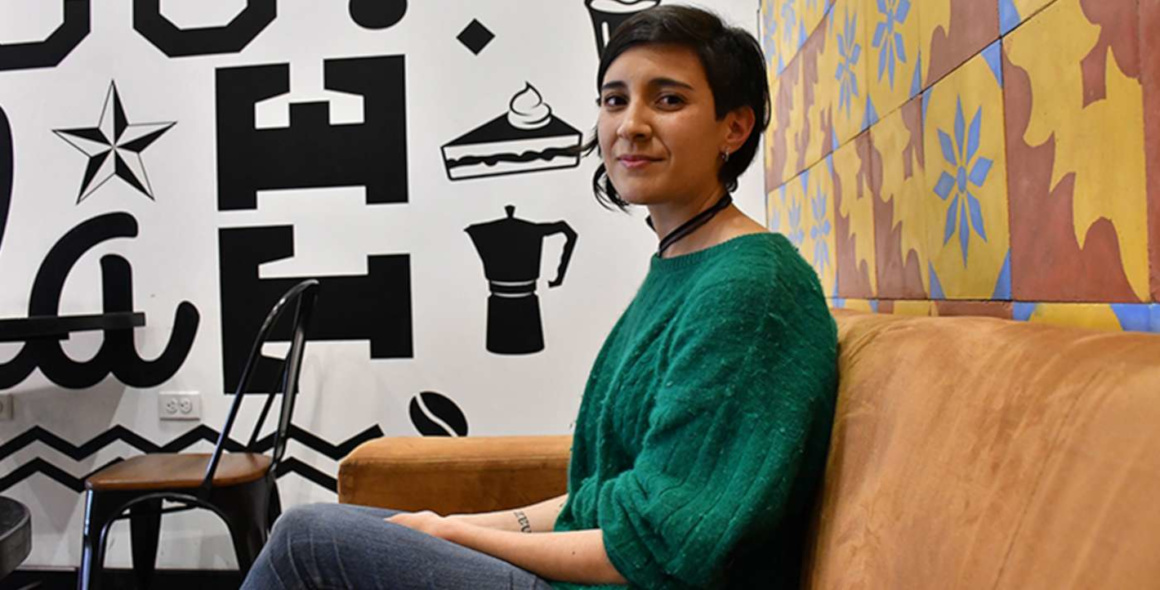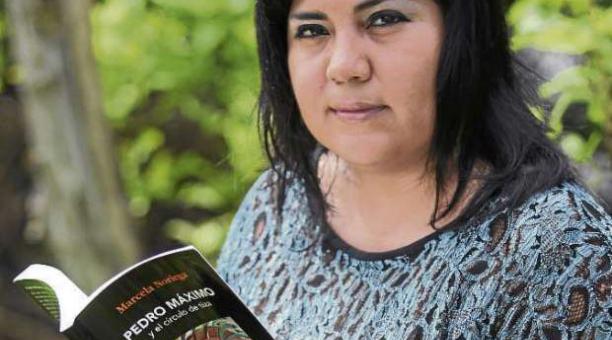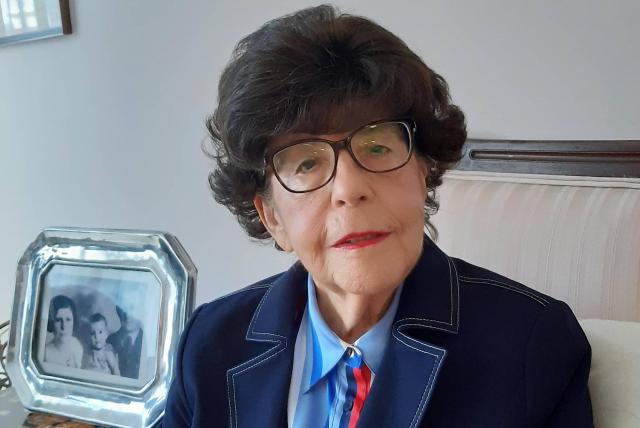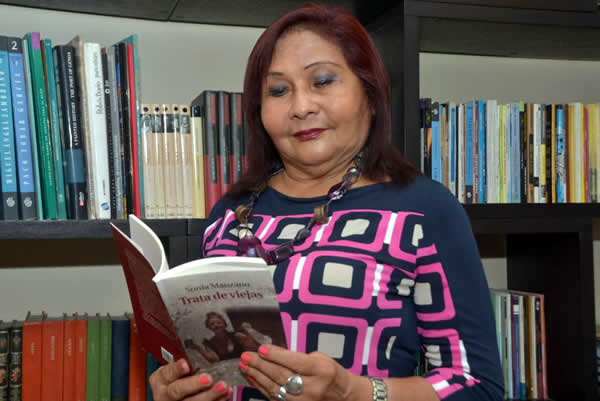Karina Galvez (Guayaquil, July 7, 1964) is an award-winning poet with Ecuadorian and American citizenship. She has lived in Orange County, California since 1985. In 1995, she published her book “Karina Gálvez – Poesía y Cantares”[Karina Galvez – Poetry and Songs], which includes both English and Spanish versions of her poems with a prologue written by León Roldós Aguilera, Ecuador’s former vice president. She is also a songwriter and author of children’s poems and short stories. Her Spanish poems have been translated into English, French, Italian, Portuguese, Romanian, Bulgarian, Slovene, and Czech.
Continue reading “Karina Galvez”Category: Female writers
María Fernanda Espinosa
María Fernanda Espinosa Garcés (b. September 7, 1964, Salamanca, Spain) is an Ecuadorian politician, diplomat, writer, and poet affiliated with the political party PAIS Alliance. She holds the distinction of being the first woman to serve as Ecuador’s minister of national defense, the first woman to be appointed as Ecuador’s permanent representative to the United Nations in New York, and the first Latina woman to be elected as president of the UN General Assembly. Prior to her political and diplomatic career, she was an Associate Professor and Researcher at the Latin American Faculty of Social Sciences (FLACSO). Ms. Espinosa Garcés is also a prolific writer and poet, having published over 30 academic articles on various topics such as the Amazon River, culture, heritage, climate change, and foreign policy, among others. She has authored five volumes of poetry and was awarded the Ecuadorian National Poetry Prize in 1990.
Continue reading “María Fernanda Espinosa”Hipatia Cárdenas de Bustamante
Hipatia Cárdenas de Bustamante, also known as Aspacia (Quito, March 23, 1889 – Quito, February 9, 1972) was an Ecuadorian writer, politician, suffragist, and feminist. She was one of the pioneering defenders of women’s suffrage in Ecuador. In 1929, she became the first female Councilor of State, and in 1932, she became the first female candidate for the presidency. She fought for respect in the women’s right to vote in Ecuador after its approval in 1929 and the appearance of groups that were against it. In 1943 she published her book “Oro, rojo y azul,” and wrote for the newspapers El Día, El Comercio, and the magazine América.
Continue reading “Hipatia Cárdenas de Bustamante”Luz Elisa Borja Martínez
Luz Elisa Borja Martínez (Riobamba, May 15, 1903 – Riobamba, July 10, 1927) was an Ecuadorian poet, pianist, painter, and sculptor. In only 24 years of life, she amassed an extensive body of written work, which her brother Luis Alberto published after her death in two books titled “Cofre Romántico” and “La Bella Durmiente.” The second book contains the poem “Quiero Llorar” (I Mourn), which she wrote in 1918, at the age of 15, after the death of the mother superior of the Riobamba Sisters of Charity. It has seven stanzas, two of which became the lyrics for the Ecuadorian pasillo called “Lamparilla.” The music was composed by Miguel Ángel Casares Viteri, who was inspired by Borja’s poem and his dismay over the damage caused by a Chanchán River flood. Some of her original works can be found at the House of Ecuadorian Culture in Chimborazo.
Continue reading “Luz Elisa Borja Martínez”Rosa Amelia Alvarado
Rosa Amelia Alvarado Roca (1944, Guayaquil) is an Ecuadorian writer and poet. In 1964 she founded the Guayaquil-based magazine Hogar, which became the biggest women’s magazine line in Ecuador. From 1967 to 1972, she worked in television as the director of programming at Channel 2 in Guayaquil, specializing in the creation of cultural programs. She is the president of the Guayas branch of the House of Ecuadorian Culture, and is a member of the Ecuadorian Academy of Language. Her most notable poems include: “Añoranza,” “Cosas Absurdas,” “De lo profano (II),” “El sermón de la montaña” and “La vida va y viene.”
Continue reading “Rosa Amelia Alvarado”Aminta Buenaño
Aminta del Rosario Buenaño Rugel (Santa Lucía, Ecuador, September 27, 1958) is an Ecuadorian writer, journalist, diplomat, and politician. She is celebrated for her literary works that explore women’s experiences and feminist themes, with notable titles such as La mansión de los sueños (1985) and Mujeres divinas (2006). As vice-president of Ecuador’s Constituent Assembly, she played a pivotal role in drafting the 2008 Constitution, advocating for gender equality. Buenaño has also served as Ecuador’s ambassador to Spain and Nicaragua. Among her many accolades is the prestigious Jauja International Short Story Prize of Valladolid (1979). Her most recent novel, Un blues para Roberto (2022), delves into themes of love and loss, and was presented at the 2022 International Book Fair in Guayaquil.
Continue reading “Aminta Buenaño”Dolores Veintimilla
Ignacia María de los Dolores Veintimilla de Galindo (Quito, July 12, 1829 – Cuenca, May 23, 1857) was an Ecuadorian poet and essayist known for her contributions to 19th-century Romanticism and early feminist thought. Raised in an aristocratic family, she received a formal education and later married Colombian physician Sixto Galindo. Her poetry, marked by themes of sorrow, unrequited love, and social justice, reflected her personal struggles and progressive views, including her opposition to the death penalty. Isolated and vilified for her outspokenness, Veintimilla tragically took her own life at the age of 27.
Continue reading “Dolores Veintimilla”Carmen Váscones
Carmen Váscones is an Ecuadorian writer, poet, literary critic, columnist, essayist and a clinical psychologist. She was born in Samborondón in 1958. She earned a degree in Psychology in 1983 and in Clinical Psychologist in 1984. She won the Cesar Dávila Andrade Poetry Biennial Prize (Cuenca, 1993) for Memorial aun acantilado, top Mention at the Ismael Pérez Pazmiño Poetry Contest (El Universo, Guayaquil, 1996) for Aguaje. In 1998 she received an award from the Ministry of Education and Culture of Ecuador, in 2001 she received an award from the National Congress of Ecuador for “her practice of teaching and the cultivation of beautiful letters,” and in 2002 she received the Cultural Educational Merit (Ministry of Education and Culture of Ecuador). As a psychologist, Váscones works with abused children and their mothers. Her book ULTRAJE / OUTRAGE was translated into English by Alexis Levitin in 2018.
Continue reading “Carmen Váscones”Edna Iturralde
Edna Iturralde De Howitt (Quito, May 10, 1948) is Ecuador’s most important and prolific authors of children and young adult’s literature. She has written 62 books. She has won various prizes and nominations within and outside her country. Among the most important of these are the Dario Guevara Mavorga National Prize for Children’s Literature in Ecuador in 2001, the Skipping Stones Award in the United States in 2002 and 2005, and the Mention of Honor of the Municipality of Quito in 2003 and 2004. She has been nominated twice, in 2012 and 2013, for the Astrid Lindgren Memorial Award (ALMA). Her work was selected by the SEP within the competition of the Mexican Ministry of Education in 2003 and 2005. In 2005, two of her books were nominated for the Ecuadorian Honor List of IBBY (International Board of Books for the Young). She was a 2014 International Latino Book Awards Finalist. She is the president of the Ecuadorian Academy of Children and Juvenile Literature, which is associated with the Latin American Academy of Children and Juvenile Literature. Several of her books has been translated into English.
Continue reading “Edna Iturralde”Ruth Patricia Rodríguez
Ruth Patricia Rodríguez Serrano (Loja, 1966) is an Ecuadorian writer and professor at the Universidad San Francisco de Quito. Known for her work across various genres including poetry, short stories, and novels, she has won prestigious national literary awards such as the Círculo de Lectores and the Pablo Palacio Prize. Rodríguez has also represented Ecuador internationally, notably at the World Assembly of Young Artists for Peace in Bulgaria. Her critically acclaimed works include “Putas de Cristal” (2010) and “Clepsidra. Todos fuimos margaritas” (2020), which features both a novel and a short story collection.
Continue reading “Ruth Patricia Rodríguez”Tamara Cadena (pen name Judesty)
Tamara Cadena, pen name Judesty (Quito, 1967) is an Ecuadorian writer. She has received several national and international awards and recognitions. In 2009, Cadena’s first novel El acuerdo (2008) won first prize in the online literary contest of El Corte Inglés and BookAndYou.com. Cadena’s third and latest novel El tiempo roto (2017) was well-received by critics. She has lived in Spain since she was thirteen. Cadena publishes her books under the pseudonym Judesty.
Continue reading “Tamara Cadena (pen name Judesty)”Natalia García Freire
Natalia García Freire (Cuenca, 1991) is an Ecuadorian journalist and writer. As a freelance writer her articles have been published in Univisión, El Hoy, Plan V Magazine, El Mercurio, CityLab Latino and BG Magazine. In 2019, Jorge Carrion of the New York Times included García’s debut novel “Nuestra piel muerta” in his article of the best Spanish-language books of the year. García currently lives in Madrid, Spain.
Continue reading “Natalia García Freire”Marcela Noriega
Marcela Noriega Rodríguez (Guayaquil, 1978) is an Ecuadorian writer, journalist and professor. She is the author of a novel, poetry books, and juvenile and children’s literature. At the age of 19, she won second place at the Biennial of Ecuadorian Poetry in Cuenca and in 2009 she won first place in the same contest with her book No hay que dar voces, published by the University of Cuenca, with support from the Ministry of Culture. She is the author of the novel Pedro Máximo y el círculo de tiza (2012).
Continue reading “Marcela Noriega”Lupe Rumazo
Lupe Rumazo Cobo (Quito, Ecuador, October 14, 1933) is an Ecuadorian writer and essayist known for her philosophical reflections and innovative narrative techniques. Her works, spanning essays, short stories, and novels, explore themes of identity, exile, and existential struggle. Notable authors like Ernesto Sábato, Juana de Ibarbourou, and Benjamín Carrión have prologued her works. A member of the Ecuadorian Academy of Language, the House of Ecuadorian Culture, and the Circle of Venezuelan Writers, she has lived in Venezuela since 1973. Though initially more recognized in Venezuela, she is now regarded as one of Ecuador’s most significant literary figures.
Continue reading “Lupe Rumazo”Sonia Manzano Vela
Sonia Manzano Vela is an Ecuadorian poet, novelist, short story writer and pianist. She was born in Guayaquil on February 27, 1947. Her poetry collection Carcoma con forma de paloma (1986) achieved commercial success. Her short story collection Flujo escarlata (1999) won the Joaquín Gallegos Lara National Fiction Prize. Her first novel, Y no abras la ventana todavía (1993) won the first prize in the “Biennial Ecuadorian Novel” contest. Her last novel, Solo de vino a piano lento (2013), was acclaimed by literary critic Antonio Sacoto as the best novel written by an Ecuadorian woman so far in the 21st century.
Continue reading “Sonia Manzano Vela”

